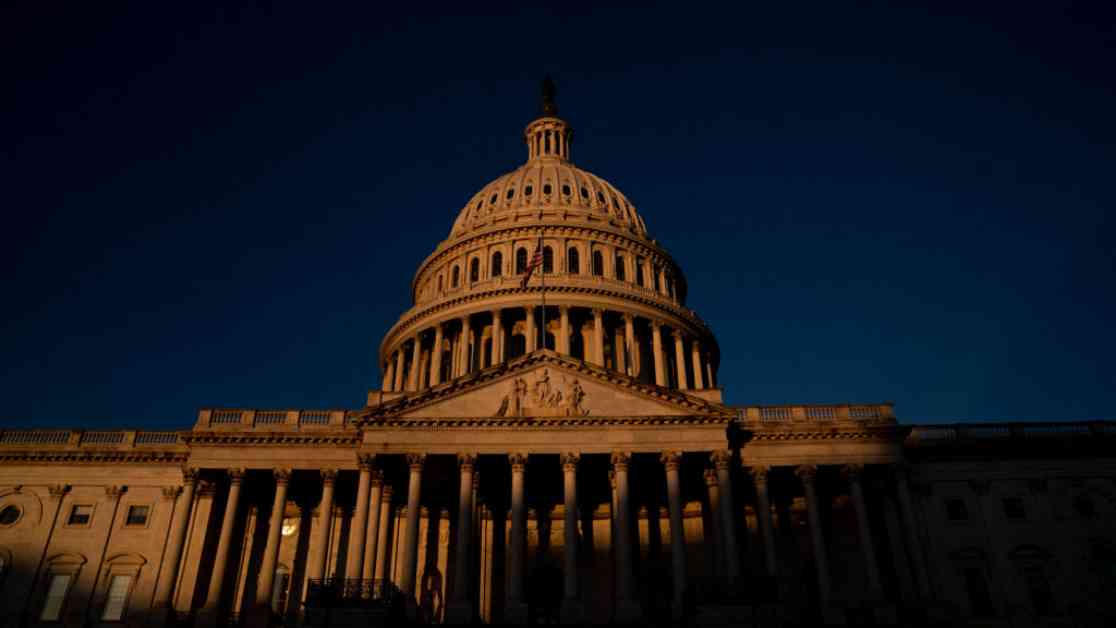The House of Representatives recently passed a bill aimed at regulating Chinese biotech companies in the United States. The bill, known as the BIOSECURE Act, passed with a vote of 306 to 81, signaling strong bipartisan support for the measure. This legislation is designed to hold drug companies accountable by requiring them to cease business operations with certain Chinese biotech firms within eight years to maintain good standing with the federal government.
Under the provisions of the BIOSECURE Act, the U.S. government would be prohibited from entering into contracts or providing grants to companies that engage in business with a “biotechnology company of concern.” Specifically, the bill names five Chinese companies that fall under this category: BGI Genomics, MGI Tech, Complete Genomics, WuXi AppTec, and Wuxi Biologics. These companies have been identified as potential risks to national security and public health, prompting the need for increased regulation and oversight.
The passage of the BIOSECURE Act in the House represents a significant step towards addressing the growing concerns surrounding Chinese biotech companies operating in the United States. However, the bill will likely need to be attached to a larger legislative vehicle, such as the annual defense bill or government funding legislation, during the upcoming lame duck session. This period between the elections and the swearing in of newly elected officials will be crucial for advancing the BIOSECURE Act through the legislative process.
While the House vote on Monday was a positive development for the bill, the true test will come in the Senate, where individual lawmakers wield more power and influence. The Senate will play a key role in determining the fate of the BIOSECURE Act and whether it will ultimately become law. The bill’s supporters will need to work diligently to garner support from senators on both sides of the aisle in order to secure its passage.
Subheadings:
The Need for Regulation of Chinese Biotech Companies
Impact of the BIOSECURE Act on Drug Companies
Challenges and Next Steps for the BIOSECURE Act
The Need for Regulation of Chinese Biotech Companies
The increasing presence of Chinese biotech companies in the United States has raised concerns among lawmakers and national security experts. These companies have access to sensitive data and technologies that could pose a threat to U.S. interests if misused or exploited. The BIOSECURE Act seeks to address these concerns by establishing clear guidelines for how drug companies should interact with Chinese biotechs to mitigate potential risks.
By singling out five specific Chinese companies as “companies of concern,” the bill sends a strong message that certain entities are being closely monitored for their activities. BGI Genomics, MGI Tech, Complete Genomics, WuXi AppTec, and Wuxi Biologics have all been identified as having ties to the Chinese government or military, raising red flags for U.S. officials. The BIOSECURE Act aims to prevent these companies from accessing sensitive information or resources that could be used against American interests.
Impact of the BIOSECURE Act on Drug Companies
The passage of the BIOSECURE Act has significant implications for drug companies operating in the United States. These companies will now be required to reevaluate their business relationships with Chinese biotech firms to ensure compliance with the new regulations. Failure to do so could result in losing government contracts or grants, potentially jeopardizing their standing within the industry.
Drug companies will need to carefully assess their partnerships and collaborations with Chinese biotechs to determine if any of the named companies are involved. If so, they will need to take steps to phase out these relationships over the next eight years to avoid running afoul of the BIOSECURE Act. This process may involve restructuring business operations, seeking new partners, or reevaluating research and development efforts to align with the new regulatory framework.
Challenges and Next Steps for the BIOSECURE Act
While the House vote on the BIOSECURE Act was a significant milestone, there are still challenges ahead for the bill as it makes its way through the Senate. Individual senators hold more power and have the ability to shape the legislation in ways that may differ from the House version. This means that supporters of the bill will need to engage in strategic outreach and advocacy efforts to secure enough votes for passage.
Additionally, the BIOSECURE Act may face opposition from industry groups, foreign governments, and other stakeholders who stand to be impacted by the new regulations. These groups may seek to influence the legislative process through lobbying, public relations campaigns, or other means to water down or block the bill altogether. The bill’s proponents will need to anticipate and address these challenges in order to successfully navigate the Senate and see the BIOSECURE Act become law.
In conclusion, the passage of the BIOSECURE Act by the House represents a significant step towards regulating Chinese biotech companies operating in the United States. The bill aims to protect national security and public health by establishing clear guidelines for how drug companies should interact with certain Chinese biotechs. Moving forward, the bill’s supporters will need to navigate the legislative process in the Senate and overcome potential challenges in order to see the BIOSECURE Act become law.


















